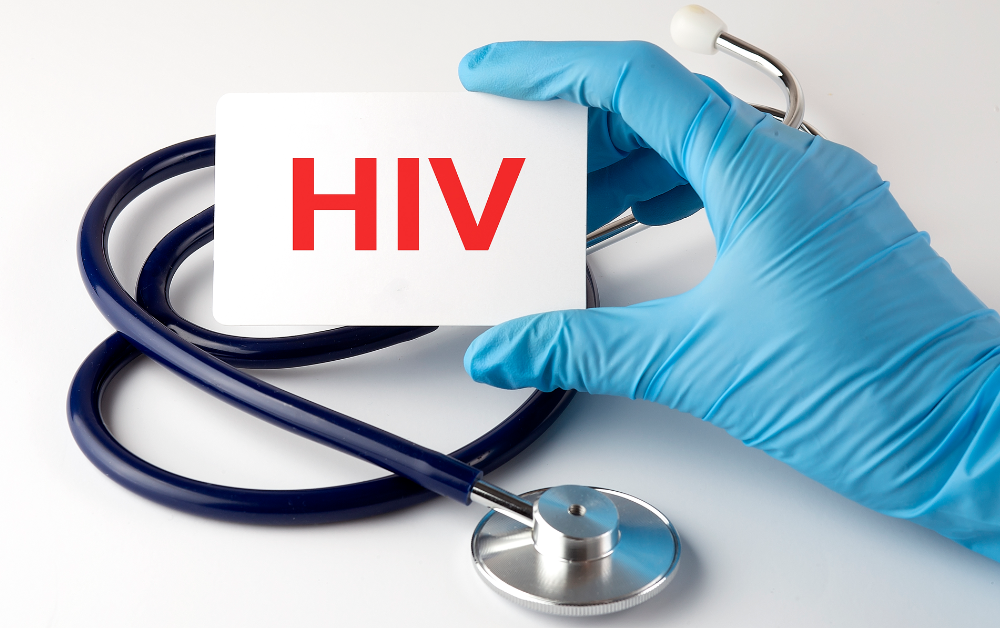Living with HIV can be an overwhelming journey, one that’s filled with complex emotions aside from physical health challenges.
One of the most significant psychological and emotional hurdles is dealing with HIV-related stress, a multifaceted issue that can deeply affect both your mental and physical health.
When you’re living with HIV, the psychological and emotional strain you experience can stem from the following:
- The stigma associated with the disease
- The fear of disclosing one’s status to others
- The challenges of managing a chronic condition that affects physical health, social relationships, and life expectancy
It’s highly likely that you may face anxiety, depression and isolation as you navigate the complexities of treatment regimens, potential side effects and concerns about transmitting the virus to others.
Recognizing symptoms of HIV-related stress
HIV-related stress manifests through both physical and emotional symptoms.
Physical symptoms
The physical symptoms of HIV-related stress include:
- Fatigue.You may perceive this fatigue as a profound sense of tiredness that isn’t eased by rest.
- Sleep disturbances. These include difficulties in falling or staying asleep.
- Changes in appetite or weight. Stress can lead to notable fluctuations in eating habits, resulting in unexpected weight loss or gain as you may lose your appetite or find solace in eating more.
Emotional symptoms
On the emotional front, you may experience the following:
- Heightened anxiety
- Persistent feelings of worry
- Extreme sadness
- Lack of interest in previously enjoyable activities,
- Irritability
- Mood swings
Understanding impact of stress on HIV
Similar to how HIV-related stress can manifest physically and emotionally, it also has different effects on your body, like:
- Weakening the immune system by increasing the cortisol
- Decreasing the effectiveness of HIV treatment
- Increasing the risk that you forget to take your medication
- Making you feel overwhelmed by the whole regimen
Effective strategies for managing stress while dealing with HIV
Here are some strategies to help you manage stress while navigating the challenges of living with HIV.
1. Establish a support system.
Identify people, including friends and family, in your personal life who understand what you’re going through and can empathize with your situation. Similarly, engage with communities and forums where experiences and advice can be shared with peers undergoing similar challenges.
2. Engage in regular physical activity.
Incorporating physical activity into your daily routines can help your mental and physical well-being. These activities include:
- Walking
- Yoga
- Swimming
3. Practice mindfulness and relaxation techniques.
Mindfulness and relaxation techniques are powerful tools for stress management. Meditation and deep breathing exercises can help focus your mind and reduce your stress levels, while progressive muscle relaxation can help in physically releasing tension throughout your body.
4. Seek professional mental health support.
Therapists specializing in chronic illness can help you with personalized support and strategies for coping with the unique challenges of living with HIV. Specifically, they may use cognitive behavioral therapy (CBT) for stress management. This evidence-based approach can help you modify negative thoughts and behaviors related to stress.
Navigating medication and treatment adherence
Here are several ways to help you stay consistent with your treatment and see to it that you’re taking your medication on time.
Understanding medication side effects
The common side effects of HIV treatment include:
- Nausea
- Fatigue
- Insomnia
To manage this, you can:
- Adjust the timing of medication intake
- Make some dietary changes
- Consult your healthcare provider for medication adjustment
Being consistent with your medication
Consistency in medication intake helps maintain stable levels of the medication in the body, which prevents the virus from multiplying.
Create a daily routine that incorporates medication intake by setting reminders through apps or alarms.
Planning for the future
When you’re living with HIV, planning for the future is a crucial aspect of managing the condition and setting up for a fulfilling life ahead.
- Set realistic goals. These goals can guide your daily actions and long-term plans toward achieving personal and health-related aspirations.
- Engage in short-term and long-term goal setting. Doing both provides a structured approach and allows you to focus on your progress.
- Manage financial and legal affairs. Doing so can help you address your future needs and secure your legacy. Having one as early as now can help give you peace of mind.
- Estate planning and healthcare directives. Though it’s an emotionally complicated process, having one sees to it that your personal wishes regarding healthcare and asset distribution are clearly communicated and legally documented.
Frequently asked questions
What are effective coping strategies for managing stress related to an HIV diagnosis?
Engaging in regular physical activity, seeking support from counseling or support groups, and practicing mindfulness or meditation can significantly alleviate stress associated with an HIV diagnosis.
How can someone newly diagnosed with HIV maintain a positive outlook?
Focusing on the advancements in HIV treatment, setting future goals, and maintaining a healthy lifestyle can help individuals maintain a positive outlook after an HIV diagnosis.
What role does social support play in managing HIV-related stress?
Social support from friends, family and support groups provides emotional comfort and practical help, which is crucial for managing HIV-related stress.
How can mindfulness and meditation help with HIV-related stress?
Mindfulness and meditation can reduce anxiety and improve mental well-being by helping you to focus on the present moment and manage your emotional responses to stress.
What are the benefits of professional counseling for individuals with HIV?
Professional counseling offers a safe space to express feelings, helps in developing coping strategies, and provides guidance on managing the emotional impact of living with HIV.
Key takeaway
Managing HIV-related stress requires a combination of emotional, mental and physical strategies.
Establishing a strong support network, engaging in regular physical activity, and practicing mindfulness can significantly improve both mental well-being and treatment adherence. By staying informed and consistent with medication, as well as seeking professional help when needed, you can navigate the challenges of living with HIV while maintaining a positive and healthy outlook for the future.
For private online psychotherapy services, our therapists are ready to help you here.




















































